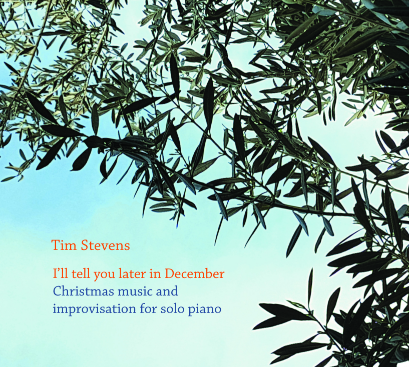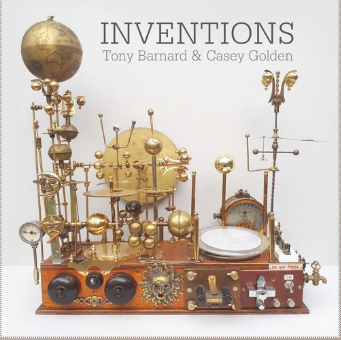JAZZ ALBUM REVIEWS IN THE AUSTRALIAN
In September, 2017 Eric Myers commenced reviewing jazz albums in the Review supplement of The Weekend Australian. All reviews in this folder are written by Myers.
jazz
Finding The Balance
Paul Williamson Quintet
Jazzhead
Four and a half stars
Published in The Weekend Australian December 16, 2017
____________________
The leader of this quintet is not the big-swinging Melbourne tenor saxophonist Paul Williamson, but the rather introverted Melbourne trumpeter of the same name. A prolific recording artist, Williamson has issued his 11th album, assembling musicians brimming with talent to explore seven of his interesting compositions. They include one of the finest Coltrane-influenced tenor saxophonists in the world today, Perth’s Jamie Oehlers, whose playing is far enough away from Coltrane to avoid imitation. Christopher Hale (acoustic bass guitar) and James McLean (drums) make up a virtuosic rhythm section. There is much to admire here, but it is pianist Andrea Keller’s very beautiful playing that provides the album’s chief fascination. Mostly her presence is a diffident one, confined to colours and commentaries in interaction with the other players, and occasional interludes. Her skill in the underrated area of comping – the piano accompaniment behind other musicians – is enthralling. Thanks to good engineering, even the most subtle of her figures can be heard clearly in the sound mix. On the last three tracks By A Thread, Yes I’ll Be Your Pin Cushion and When The Stars Align Keller takes fully-fledged solos for the first time. Moving through the harmonic changes, mostly with a gently percussive chordal approach and otherwise with the single-line melody favoured by most modern pianists, her playing not only highlights the lush harmonies of Williamson’s compositions but also reveals an exceptional talent for melodic beauty. Despite hints of uncertainty in some of the tunes, as Hale and McLean search for a groove, they invariably get up a head of steam and click into place when Keller and the other soloists stretch out. At these moments the music is dancing.
Eric Myers
jazz
I’ll Tell You Later in December: Christmas Music and Improvisation for Solo Piano
Tim Stevens
Rufus Records
Four and a half stars
Published in the Weekend Australian December 23, 2017
____________________
If your idea of a Christmas album includes hip versions of Santa Claus is Comin’ to Town or Jingle Bells, this is not your cup of tea. This album is for the aesthete rather than the Christmas reveller. It features Melbourne pianist Tim Stevens with music written over many centuries by composers inspired by the theology and poetry of the Christmas story. They include Johannes Eccard, Gustav Holst, Oliver Messiaen, Francis Poulenc and, most significantly, Johann Sebastian Bach, the greatest composer who dedicated his works to the glory of God. Stevens, the son of an Anglican priest, grew up in an environment dominated by classical and church music. That background shows here, but he cannot disguise also a refined jazz talent that has been apparent since he emerged in the mid-nineties as part of the Browne Haywood Stevens Trio. Stevens apologises for the way he “messes with” Bach’s O Jesulein suss, but this brilliant version – to my ears the richest track on the album - is a reminder of how jazz pianists have long been fascinated by Bach’s music. Think of Keith Jarrett’s Well-Tempered Klavier, and the great French pianist Jacques Loussier. Most of the works that Stevens has adapted for solo piano are originally very moving choral works with the sort of rich harmonic language that appeals to jazz enthusiasts. Stevens plays with such depth of feeling, fully exploiting the sonority of the grand piano, that the sombre and contemplative mood of church music is retained throughout. This thoughtful album captures the triumphalist joy of Christmas as well as the nostalgia and, dare I say it, the melancholy feelings too, that are part of this season for many of us.
Eric Myers
jazz
Inventions
Tony Barnard & Casey Golden
Bondi Shed Productions
Four stars
Published in the Weekend Australian December 23, 2017
____________________
The great Australian trumpeter Bob Barnard, now 84, and his drummer brother Len Barnard, who died in 2005, have so many of their descendants active in music that the family tree is looking like a dynasty. Guitarist Tony Barnard, 58, Bob’s son who lives in the United Kingdom, already has 40 albums to his credit. Now comes the third generation in the form of pianist Casey Golden, 29, Bob’s grandson. From the evidence of their new duo album Inventions, recorded recently in London, these two extraordinary musicians have inherited the fertile musical minds of their distinguished forebears. This album of 16 original compositions, nine by Barnard and seven by Golden, is beautifully played by two musicians who have technique to burn. Listening to all of the Barnard compositions together, one might conclude that the older musician is a tad more conservative, while Golden appears to be a tad more innovative. Consider the four brief Golden compositions all called Invisible (I,II,III and IV). Snatches of musical experience only, they nonetheless contain experiments with tonality and harmonic changes that could only come from a musician with his head in the 21st Century. Some commentators have already pointed to the overtones of other forms of music – classical, folk, country, world – that may flavour the music here. But two aspects of their playing indelibly locate them in jazz: their improvisations, always authoritative and often formidable; and their great ability to establish a groove over an infectious pulse, despite the absence of a rhythm section. Barnard uses the harp guitar, which has an additional set of seven steel strings off the main fretboard. This unusual instrument pleasingly ameliorates the normal sound of the acoustic guitar.
Eric Myers


